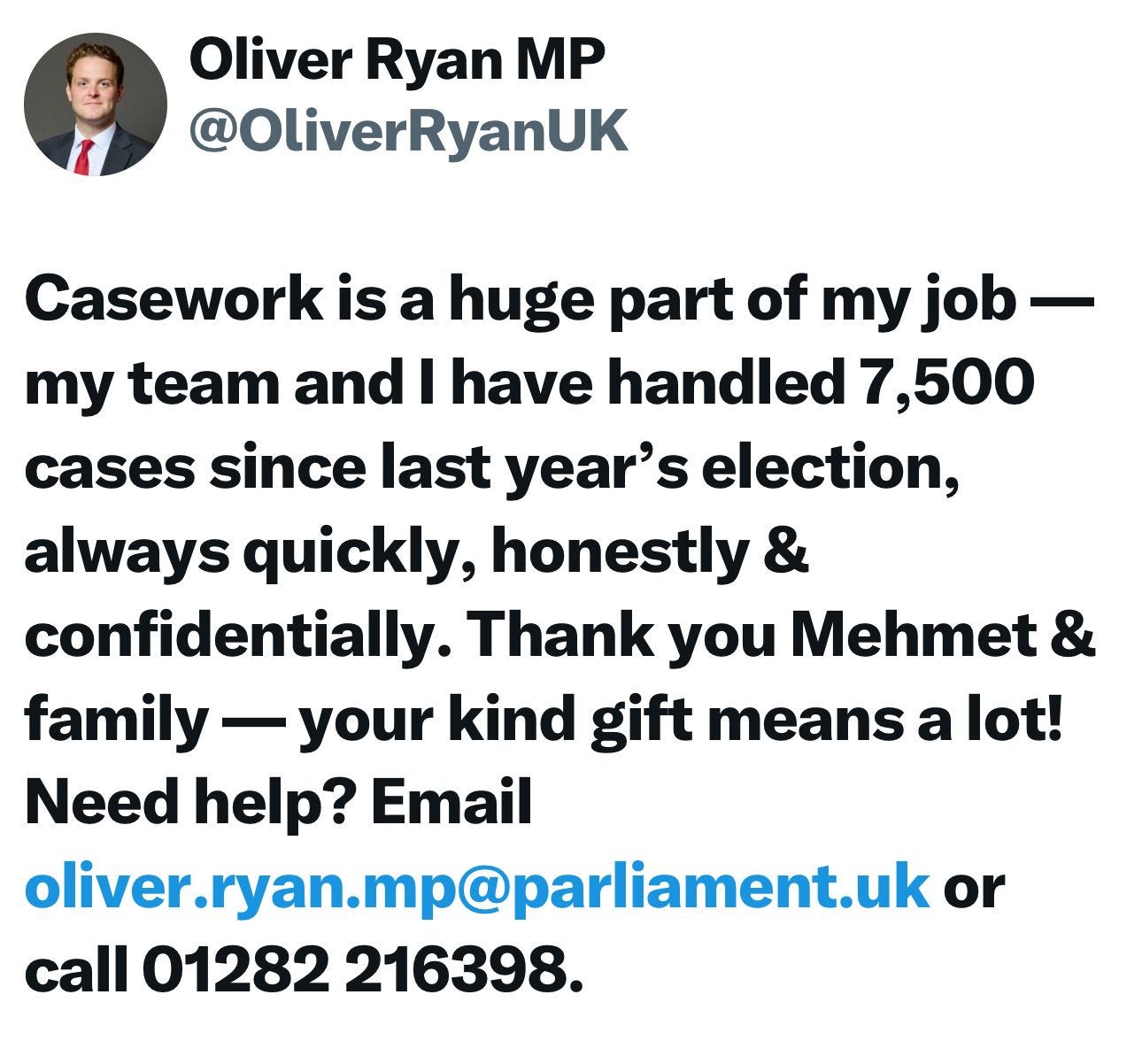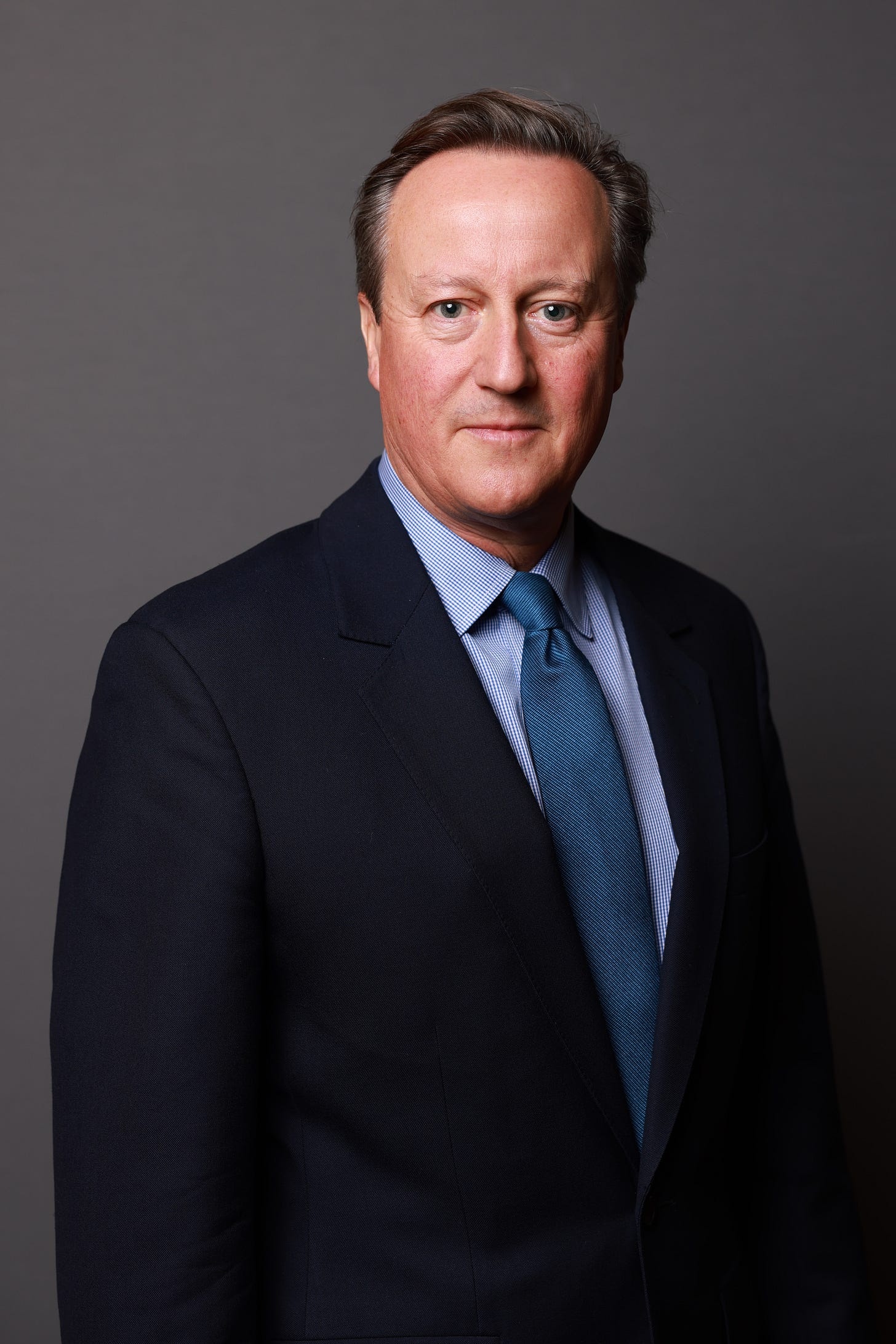Earlier today Reform UK Mayor of Greater Lincolnshire, Dame Andrea Jenkyns, took part in a press conference for her party under the banner 'Women for Reform'. As you might expect it wasn't the most intellectually stimulating of press confereres - I don't think I'm Reform's target audience - but I did raise my head when Dame Andrea said the following:
"We have lived through decades when institutions, police and some politicians have turned a blind eye to the grooming of our children, and we've seen a rise in domestic abuse. Ladies and gentlemen there's no wonder that both men and women are turning to Reform, they need hope that this 1984 Orwellian nightmare, where the thought police are monitoring our every social media post yet letting off paedophiles, want this to end."
The reason that Dame Andrea's comment piqued my interest is this week, for the very first time, I have been reading Orwell's outstanding work of political commentary / dystopian science fiction in preparation for this year's Open University module.
It piqued my attention because like a great many others I have talked in the past about 'Big Brother', 'Orwellian' or 'thought-police', without ever reading the book. They are words and phrases that have worked their way into our vocabulary without the need for understanding them, or appreciating Orwell's warning.
So, as Dame Andrea was talking one thought kept popping into my head. I wonder if she has ever actually read 1984? My guess is that she hasn't.
So, having read 1984 only this week, and having loved it (save for having the least sympathetic protaganist ever) let me say this.
As far as I know our government, for all its faults, is not in the business of changing history.
Our government is one of law and order - arguably too many laws and too many orders - but isn't that the opposite to the party portrayed in 1984, where there was only 1 crime? That of thought?
But let me agree with Dame Andrea, and I'm sure having read 1984 herself she will see the irony, that it is no surprise that men and women are turning to Reform, because I'm sure Chapter III of Goldstein's manual will be at the forefront of her mind:
"They (the High) are then overthrown by the Middle, who enlist the Low on their side by pretending to them that they are fighting for liberty and justice. As soon as they have reached their objective, the Middle thrust the Low back into their old position of servitude, and themselves become the High."
Could there be a better description of the strategy being undertaken by Reform UK at the minute? Could we be living through an Orwellian nightmare?
In his Times essay this week Fraser Nelson writes "Journalism is anchored to facts: no one pays to read junk. And almost no one pays for social media. It’s a device selling people’s attention to advertisers, with algorithms designed to engage (or enrage), to keep you hooked. Yet most Brits now use social media as a news source."
It strikes me that in what many may argue is becoming a post truth world this is the most disconcerting and Orwellian aspect of our modern political sphere.
Many, including a great many of Reform UK's target audience, are not going to the news for impactis facts to consider, but rather are going to the news to reaffirm and reinforce their existing beliefs.
Once you realise that then you realise you are not too far away from Orwell's most disturbing prophecy "He who controls the present, controls the past. He who controls the past, controls the future"
When Reform UK (or, for that matter, any party) are able to shape facts as they choose to then they are not too far away from shaping our past and our future into a truly dystopian Orwellian nightmare.
In invoking Orwell Dame Andrea should ensure she is conisdering his whole vision, I'm not at all certain any Reform UK politician would be rushing to use the imagery of Orwellian nightmares if they were to do so.


